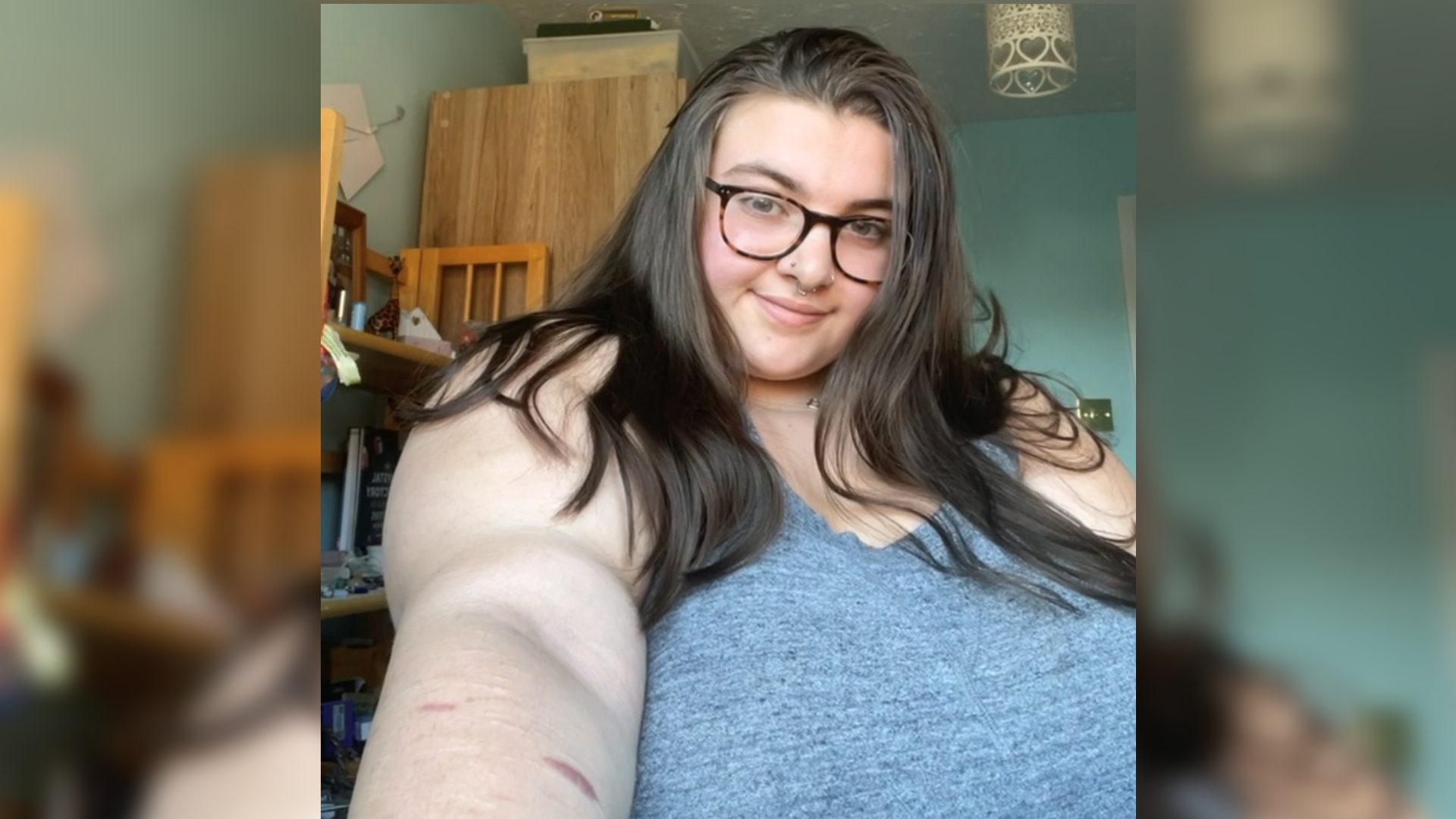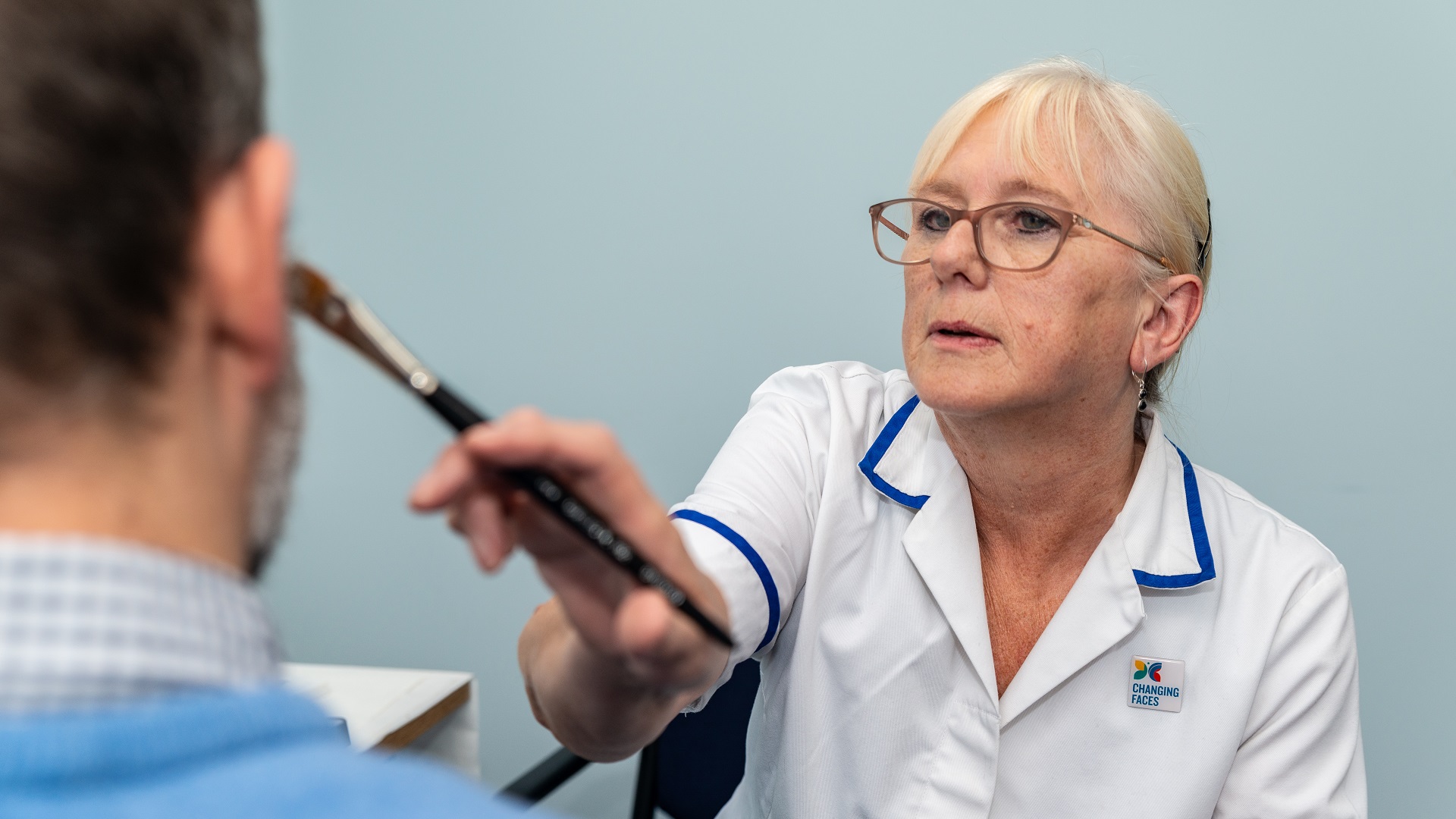[Please note: content warning for self-harm in the piece below]
My name’s Lottie and I’m an 18-year-old chronic and mental illness fighter from Cambridge. My visible difference is self-harm scars.
I started having mental health issues when I was about 11 years old. It started out with anxiety, then I developed obsessive compulsive disorder (OCD) and now I am diagnosed with borderline personality disorder (BPD), as well as mixed depression and anxiety.
Having BPD makes it very hard to regulate my emotions and sometimes I get so upset that I lose control, which can lead to self-harming behaviour.
My scars have affected me emotionally and physically, from being stared at in public, to being denied jobs. For years I had no confidence and would cover my scars with clothing to the point I was hot and uncomfortable because I was scared of judgment. In new situations, I still feel self-conscious, as I know people may treat me differently because of assumptions they may make.
There’s a difference between noticing someone and staring. If you see someone with a visible difference and do catch yourself staring, just smile, it really can help.
The way I deal with people’s reactions now depends on the situation. I used to freeze when someone asked me “what happened?” or would give a rude response. Now, I usually say “don’t worry”, if it’s a stranger, or occasionally tell someone briefly of my conditions if I feel able to. I also have tattoos that help to distract and change the subject quickly if I feel uncomfortable.
I recently got asked what had happened by a salon worker while I was getting my nails done. Two other staff members had also kept looking at my scars. I think it’s clear what they are and none of their concern anyway. This seemed quite unprofessional to me, and my mum almost said something as it irritated her as well. My mum, on several occasions, has asked me if I want her to have a word with the people staring, as it bothers her just as much as it bothers me.
Sometimes we look at people out of curiosity without realising and that’s okay as long as there’s no malicious intent behind it. There’s a difference between noticing someone and staring. If you see someone with a visible difference and do catch yourself staring, just smile, it really can help. No one looks the same anyway, so having a visible difference, including self-harm scars, is just another way we’re all unique.
I have amazing people around me that remind me that my scars are not a flaw and don’t define me.
There should be no shame for anyone who has self-harmed and has visible reminders like scars. There is no point in shaming people for their scars or making them uncomfortable over something they may regret themselves already.
Today, I’m not as affected by other people’s stares and comments. I forget that I look different to most people and am confident in my own skin. I get the odd look, but I rarely notice and can ignore it pretty quickly. A big factor in finding confidence was my friends and family reassuring me and not staring or asking questions – unless I bring it up myself.
I would not be where I am in my acceptance journey without my family and friends. I have amazing people around me that remind me that my scars are not a flaw and don’t define me.
It’s so helpful to have people in your life that help make you feel comfortable. It’s definitely not easy and it takes time, but you learn to accept yourself and wear what you want rather than trying to cover up and hide your “flaws”.
In the future, I would love to work with animals, but I also want to help people in any way I can, whether in-person or through messages like this that I hope will reach lots more people.
I’m so proud of the many things I have accomplished, despite my mental health challenges and visible difference. Firstly, I finished college and passed my subjects with decent grades, which I never thought possible with how much I struggled throughout sixth form. I have also been able to wear whatever I want the past few summers without being ashamed or self-conscious because of my scars.
For me, my scars are a reflection of a time I was struggling, and a reminder of my strength for overcoming it.
If you self-harm or have done in the past and have visible scars, just remember that you don’t owe anyone an explanation. For me, my scars are a reflection of a time I was struggling, and a reminder of my strength for overcoming it.
I’d like to see better representation in the media for all people with visible differences. Too often, people who look different are either not featured or presented as the “villain” – that’s got to change.
No one should be ashamed of what their body has been through or how it appears, whether it’s developed or from birth. If you see someone with a visible difference, just smile, you never know how much that could touch their hearts or make their day. Kindness is always the best way.
For anyone worried about self-harm – whether for themselves or a friend or family member – the National Self Harm Network (NSHN) has resources which can help.

